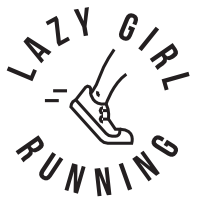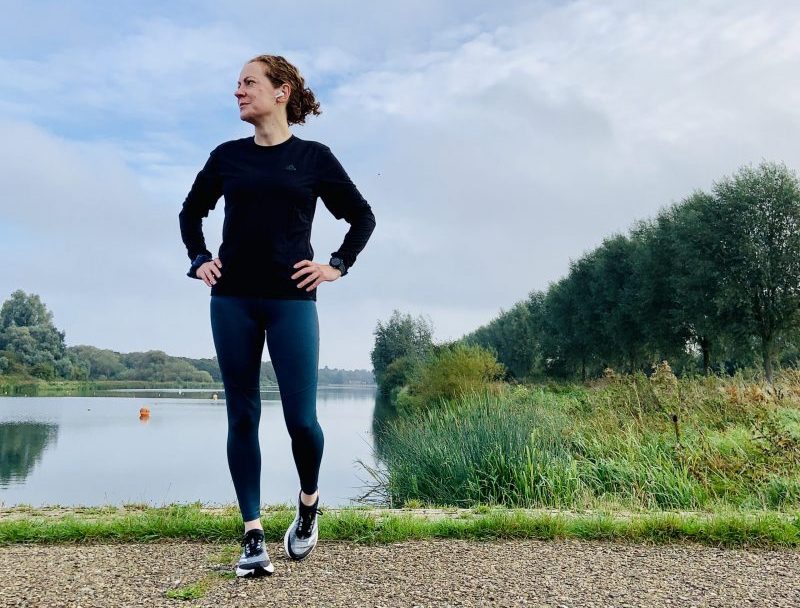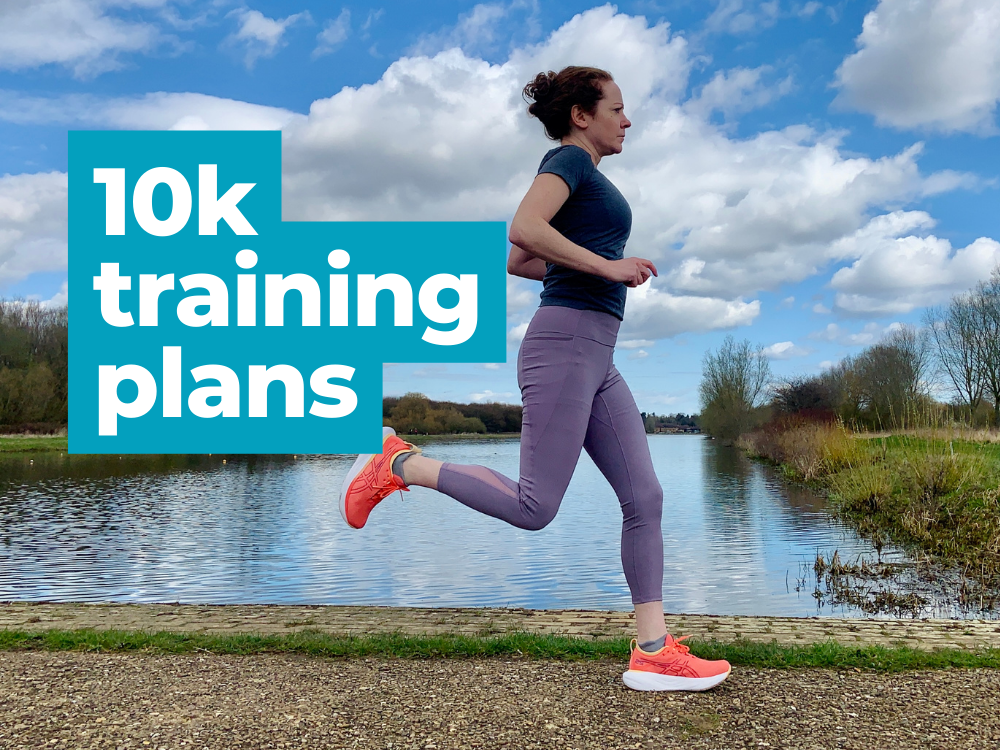Running and exercise during pregnancy: my experience
Early this year I asked four women to share their experience of exercise during pregnancy. Unbeknownst to them, I was pregnant at the time. So it’s only fair that I share my own…
I came into pregnancy with no expectations of how long I’d keep running for, but with a plan to keep active. Over the nine months, what exactly ‘active’ looked like changed as I evolved and adapted to my changing body.
I knew enough about running during pregnancy, from studying to be a pre- and post-natal trainer, and from speaking to many pregnant, active women, to know that once those two lines appeared on the stick, it wouldn’t be business as usual.
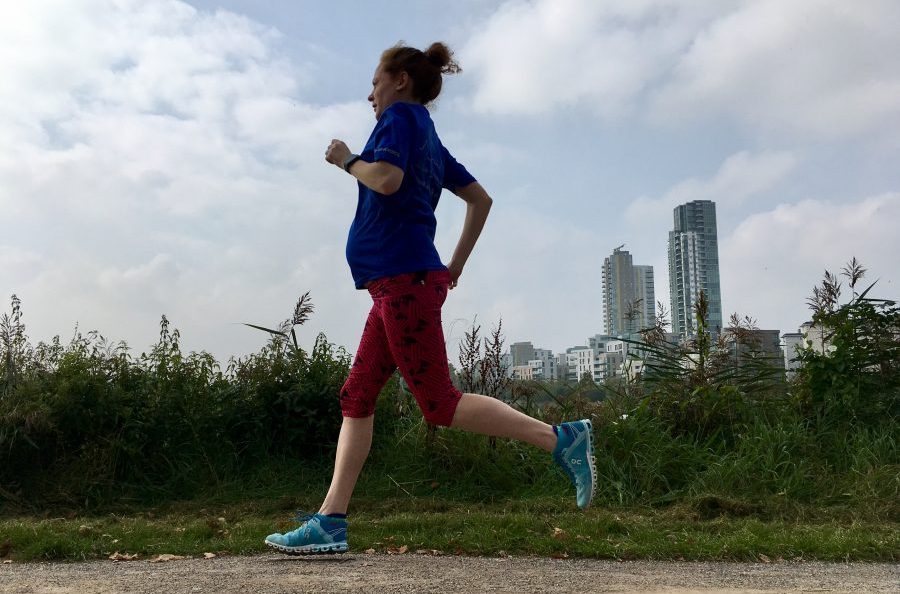
I was able to run through the first two trimesters, which I was pleased about, but right from day one this meant slowing down. I switched from my beloved Garmin to a watch with a wrist heart rate monitor so that I could keep within an easy to moderate zone.
I set the watch up to display the heart rate, distance and time on the home screen – no pace data because that wasn’t important to me. Letting go of the obsession with pace wasn’t easy, and part of that was about what other people would think of my increasingly slow runs popping up on Strava (especially coaching clients), so for some runs I would make them private immediately. I’m not proud of this, but it helped the early transition to not caring about speed.
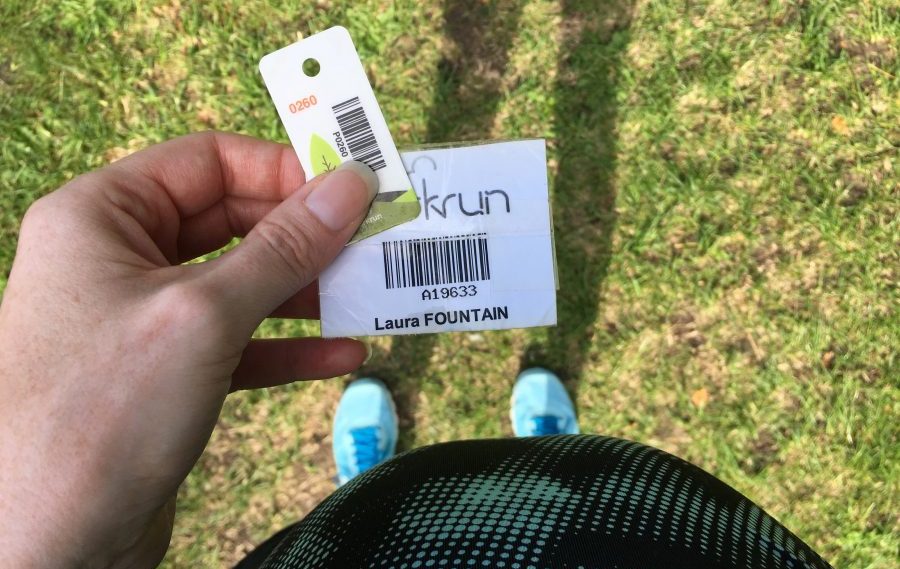
Before becoming pregnant I’d been gradually building my mileage back up from injury and was running about 20 miles a week. So for the first few months I stuck to this level – it wasn’t the time to be building up and I had no races planned so there seemed little point in doing more.
I had no ‘running goals’ during pregnancy, because goals are something that are within your control, and my body was making known that someone else was in charge these days. Instead I had ‘hopes’ for my running. I hoped I could run a 10k for my friend Cathy’s Hen Weekend at 20 weeks pregnant and I hoped I could run a 5k fun run with my nieces at 31 weeks. But I accepted I might not be able to do either.

I ticked off both events, hanging up my running shoes after the 5k in October, not because running had gotten uncomfortable or difficult, but because it seemed a good point to draw a line in the sand and quit while I was ahead.
Throughout all of this I went to the gym twice a week for strength training and used the spin bike once or twice a week, again keeping an eye on my heart rate and adapting each week. As my bump got bigger I changed my position on the bike, raising the handle bars to a more upright position and lowering my weights as I, myself, got heavier.

One thing that often gets neglected in advice about exercise during pregnancy is the very physical nature of motherhood. Lifting a new baby many times each hour requires strong arms, shoulders and back. Why wouldn’t you condition your body to deal with that and make those early weeks a little easier?
At the same time as your stomach is growing and making certain exercises more difficult or inadvisable, less visible changes are taking place in your spine and pelvis. I definitely believe that a winter of being injured and focussing more on building a stronger, more stable core helped me avoid back ache and the signature pregnancy waddle as my centre of gravity changed.
Throughout the nine months I didn’t encounter any negative attitudes to me working out, save from the toilet attendant when I stopped midway through that 10k race who told me I shouldn’t be running. I had a couple of stares at the gym, but they didn’t feel negative, more curious, and I got a more enthusiastic cheer than most at the couple of parkruns I ran.
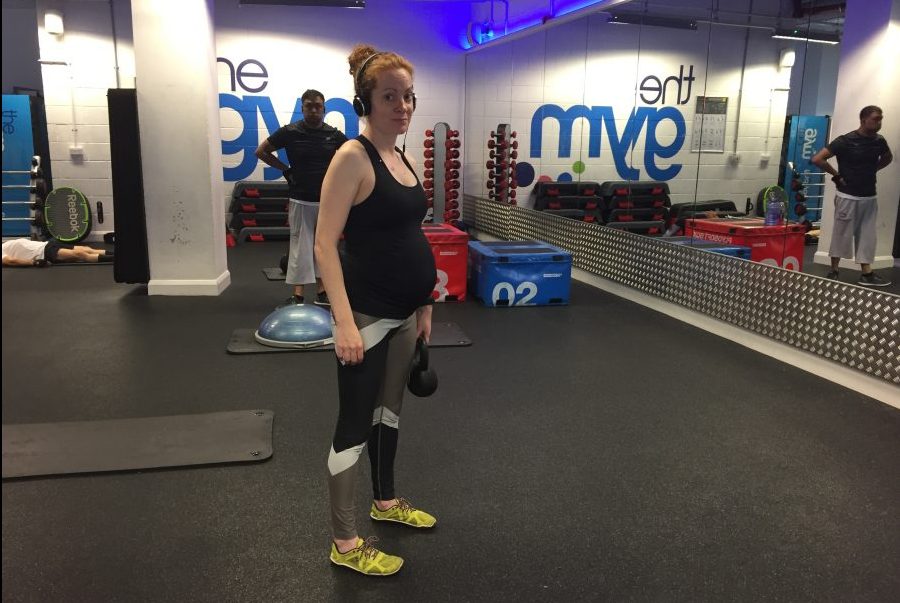
Most importantly, my obstetrician was keen for me to keep doing what I was doing. When I first met her at my 16 week appointment (I hardly saw a midwife and had consultant led care throughout) she asked what I did for a living. At the time, my coaching schedule meant I was training groups of runners five times a week on top of my own running. She was excited by this, declared me her fittest pregnant woman and told me she wished more of her patients were more active.
Attitudes to exercise during pregnancy have changed a lot. But this isn’t always a good thing. Scrolling through social media it’s always tempting, pregnant or not, to fall into the trap of thinking you should be doing more. But during pregnancy, more than ever, it’s important to do what’s right for you and not to blindly follow workouts posted by unqualified strangers on social media.
I made a conscious decision not to share my workouts during pregnancy because, despite being qualified to train pregnant women, that advise should always be tailored to individuals. It’s a cliche, but it’s true: everyone is different, listen to your own body. Motherhood is going to be full of guilt and feelings of failure, don’t start that early by feeling your workouts during pregnancy aren’t up to other people’s standards.
